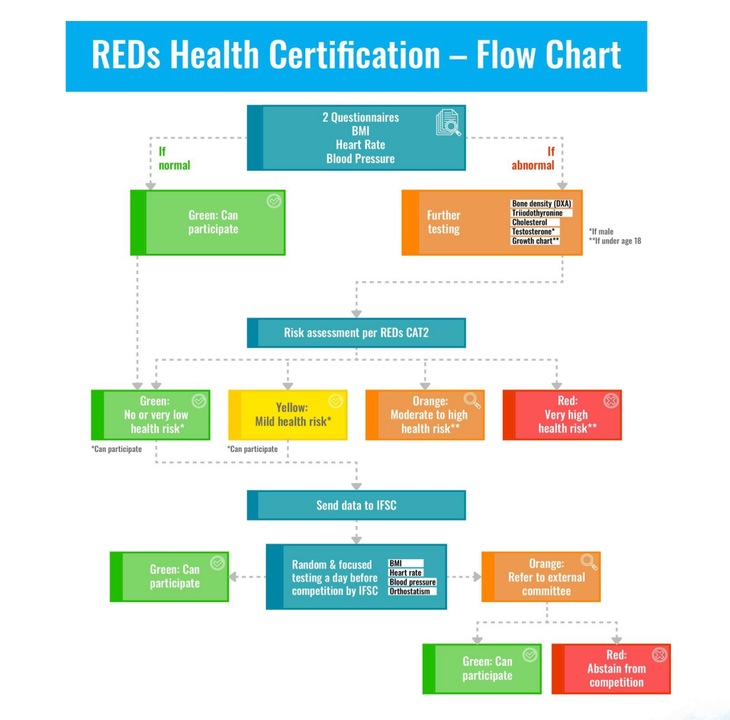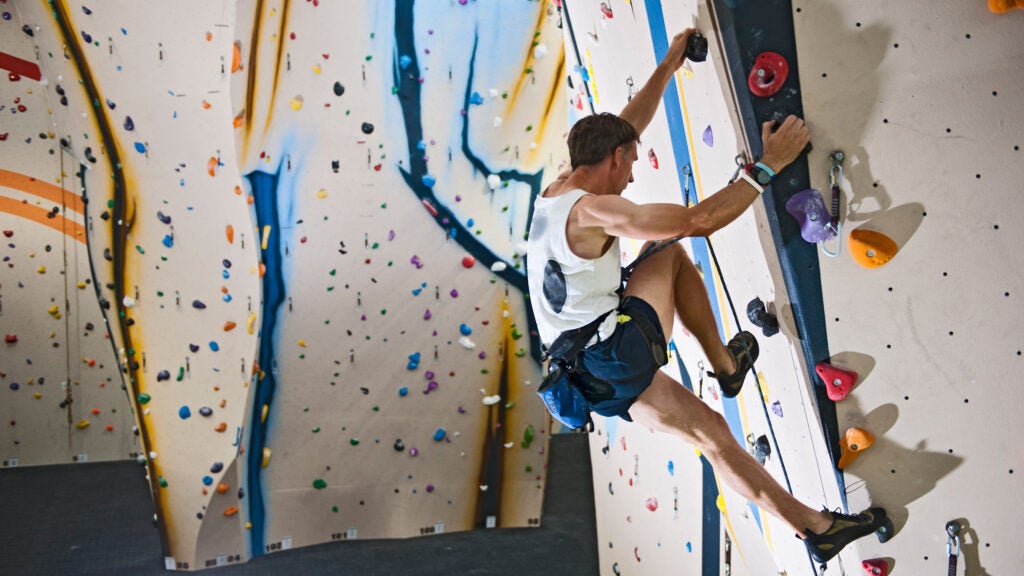No products in the cart.
Outdoor Adventure
IFSC Introduces Unprecedented Policy to Combat Eating Disorders
Ahead of the 2024 season, the International Federation of Sport Climbing has released a policy to prevent eating disorders among competition climbers. The policy, developed by scientific experts based on the findings of an International Olympic Committee, marks the first time any international federation has taken an active step to limit the pervasiveness of Relative Energy Deficiency in Sport. Ultimately, it will require athletes to submit to several questionnaires and tests before competing.
“The new system underscores our commitment to the health of our athletes,” stated IFSC President Marco Scolaris in a press release. “The policy will not only help us determine which athletes are most at risk, it will also help raise awareness of the issue, provide help to those who need it, and ensure the rights of each athlete are protected.”
The topic of eating disorders is a long-standing issue within our community. In this very magazine, the topic was addressed by Stefanie Forté in an article published in 1996. Forté was likely the first American woman climber to write about the topic. In a follow-up email conversation with her two years ago, she wrote: “If I wrote that essay today, the ending would not be tied up in a bow. The impact of an eating disorder on my life has been far-reaching and multi-layered.”
It’s been nearly 30 years since Forté’s article, and many more climbers have since raised their voices regarding the issue. While it’s hard to know the exact number of climbers impacted, it’s clear that the problem is simply not going away. Consequently, many have demanded that the IFSC institute regulations which would enforce healthier standards. Last year, demands reached a boiling point; in July, IFSC Medical Commission President Dr. Eugen Burtscher and IFSC medical committee member Dr. Volker Schoeffl resigned from their positions, reporting frustration over the body’s prolonged inaction. Furthermore, several of the world’s top climbers, including Janja Garnbret, Alex Megos, and Alannah Yip, also critiqued the IFSC’s inaction on social media, calling for stricter body mass index (BMI) standards.
“We have to ask ourselves: what kind of message do we want to send to others?” Garnbret said in an interview at an IFSC Summit. “Do we want to raise the next generation of skeletons?”
RED-S occurs when an athlete is not consuming enough calories for their activity level. It is a syndrome that may occur unintentionally and go unnoticed by athletes and coaches alike.
The IOC subcommittee noted, “[RED-S] may be unintentionally exacerbated by ‘sports culture’ due to the perceived short-term performance gains from limiting calorie intake.”
Over time, a person with RED-S may have an increased risk of bone fractures or early-onset osteoporosis. They may have a slowed metabolism or exhibit a slower heart rate, both of which may lead to long-term organ damage. Sex hormone production may also decrease; men may experience lower levels of testosterone, while women may lose the ability to menstruate. Thinking can also slow. Studies show malnourished individuals lose gray matter, the brain’s outermost layer. Additionally, myriad psychological effects may occur as well, and individuals may become irritable, anxious, or depressed.
The default methodology for flagging RED-S is BMI, which is low-cost and easy to apply. However, no singular test, questionnaire, or vital sign may diagnose RED-S. “There have been calls for BMI to be used as a yardstick for RED-S, but on its own, a simple BMI test does not provide an accurate picture of a person’s health and, importantly, would also not be legally defensible,” said IFSC General Director Piero Rebaudengo. “In addition, BMI varies greatly from one country to another. Excluding athletes from competition based only on a BMI reading would, therefore be a gross violation of their rights.”
The new policy, therefore, requires various data points from each athlete to be used in initial health assessments. National Federations work in tandem with the IFSC to collect the medical information. To receive their annual international athlete license—which is a requirement for participation in any IFSC-sanctioned event—athletes must submit two questionnaires (one on low energy availability and another on eating disorders) and provide their height, weight, BMI, heart rate, and blood pressure.
Athletes who present signs of an eating disorder or RED-S, named “Athletes of Concern,” are identified by the following criteria:
- RED-S Questionnaire scores: If an athlete’s score on either or both questionnaires is equal to or higher than a specific value, it could indicate a problem.
- BMI (Body Mass Index):
- Males 18 years and older: BMI < 18.5
- Males 15 – 17 years old: BMI < 18
- Females 18 years and older: BMI < 18
- Females 15 – 17 years old: BMI < 17.5
- Heart Rate:
- 18 years and older: Resting heart rate < 40 bpm
- Under 18 years old: Resting heart rate < 50 bpm
- Blood Pressure:
- Blood pressure < 90/60 mm Hg

After being identified, athletes of concern will be required to submit to further testing, including for bone mineral density, total or free testosterone for males, total or free triiodothyronine, total or LDL cholesterol, and, for those under 18, a review for abnormalities of their growth chart. Using this additional data, the athlete will be assigned a final score. Athletes classified as green (no or very low health risk) or yellow (mild health risk) will then be granted a competition license. Athletes classified as orange (moderate to high health risk) will require further evaluation and treatment by the National Federation medical personnel before IFSC events and throughout the season. Those athletes classified as red (very high health risk) will be ineligible for participation in IFSC events until they have demonstrated sufficient recovery and have been cleared to participate by National Federation medical personnel.
The IFSC will also perform random health screenings before events. These screenings may also be used to identify athletes of concern. All athletes of concern will ultimately be reviewed by an external commission composed of two medical doctors with RED-S expertise and one health professional with specific expertise in Climbing.
The full policy may be found here. It will be fully implemented for the Olympic Games Paris 2024 and the Olympic Qualifier Series.
Source link

